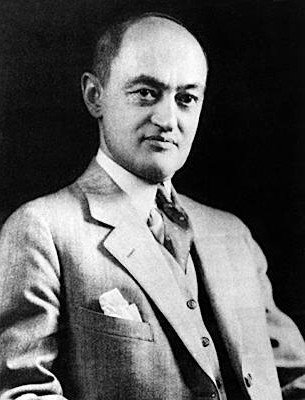 Entrepreneurship is the lifeblood of economic development as the creative-destructive forces of innovation expand the production and consumption possibilities of societies around the world. Throughout this process, sellers find buyers, capitalists fund inventors and added value is translated into profits. All things being equal, profits gravitate to those most fit to compete and satisfy the needs, wants and capabilities of the human population.
Entrepreneurship is the lifeblood of economic development as the creative-destructive forces of innovation expand the production and consumption possibilities of societies around the world. Throughout this process, sellers find buyers, capitalists fund inventors and added value is translated into profits. All things being equal, profits gravitate to those most fit to compete and satisfy the needs, wants and capabilities of the human population.
Every tongue, tribe and nation has the entrepreneurial spirit present in its DNA. Granted the spirit needs individual bodies to make its intangible essence material, entrepreneurs are the conduits through which the sine qua non of economic growth kicks into full gear. The gears put in motion a vehicle of ideas that flow from scarcity to abundance in pursuit of risk, capital and new markets.
Just as motion happens at a higher rate in low friction environments, entrepreneurship is more prevalent in free-market capitalistic systems. The invisible hand, as described by Adam Smith, allocates resources in an effort-minimizing and utility-maximizing fashion. It does so without captain, overseer or ruler, driven only by the self-interest of individual agents.
Even as entrepreneurship blossoms into innovations, newer, better and cheaper things are created. Interestingly enough, destruction is part and parcel of this creative process as older, less efficient and, perhaps, more expensive goods are replaced. More than material goods, means of subsistence are obliterated as computer servers make workers redundant just as iPods replace CD players and Kindles printed papers.
One of the most effective solutions for the disarticulation of labor as a result of innovation is the collective and systematic engagement of all members of society in the process of creative-destructiveness. In today’s information age, education is key for the re-integration of displaced workers and the sustainability and improvement of labor productivity in an ever-changing economy.
Entrepreneurs must exercise a multimodality of sorts as they interconnect with global markets via knowledge-based means of production, distribution and exchange. To effectively jockey for position they ought to use their natural strengths as a point of departure. The question of “what I have to offer” should, in most instances, precede that of “what is the marketplace currently demanding.” If one answers the former in an actionable and integral fashion the supply of “what I have to offer” will generate its own demand. This, in turn, increases the defensibility and sustainability of competitive advantages vis-à-vis the competition.
Invariably, however, entrepreneurialism will bring about disruption and destruction. But so does virtually every other phenomenon in life. Life itself is cyclical, rife with creative-destructions and unexpected disruptions, the inevitability of death being the supreme culprit. Taking account of this fact, entrepreneurs develop product lines instead of single products. Knowing that the life of a product will at some point come to an end, companies diversify streams of income and fund R&D operations to produce new and better creations that will, in turn, destroy something else of inferior value.
A life well lived is lived with death in mind. I write this not in a morbid sense, but with the purpose of injecting perspective to the relatively brief space-time that frames the human experience. For we live in a world ebbing down a path of unstoppable and irreparable destructions devoid of parallel constructions that would at least compensate for the damage that is taking place.
Whereas entrepreneurialism is creative and destructive, the trend above described is solely destructive and it is so because the force behind it is all but entrepreneurial. The force behind it is inorganic profligate spending, greed, unabashed populism, needless bureaucracy and infringement of the very rights and responsibilities that make democracy and the system of free enterprise great.
If life is prone to vice so is free enterprise. Our human instincts need be tamed by uncompromising ethical principles and values just as musicians, in order to perform beautiful symphonies, sonatas and hair-raising arias, need to play following the compositional instructions of the music score.
Principled business demands that entrepreneurs hold fast to things money can’t buy and death can’t take way. Everything else is to be held loosely. This approach empowers entrepreneurs to conduct their business functions free from the moral dysfunctions of this era’s mass consumerism; a movement that runs on the wheels of narcissistic selfishness and whose end is the blinding abyss of cacophonous chants that ruthlessly silence the emancipating proclamations of truth. The truth that James Russell Lowell described as being “forever on the scaffold” even as wrong remains “forever on the throne . . . yet that scaffold sways the future, and, behind the dim unknown, standeth God within the shadow keeping watch above his own.”
Braced with morality, responsibility and courage, entrepreneurialism constitutes one of the most powerful forces of economic and social inclusiveness in the world today. Reaffirming his calling upon such principles, the XXI century entrepreneur can purposefully and ethically exercise his creative-destructive role serving as a photosynthetic mechanism that transforms vices into virtues progressing in an upward spiral of good-better-best.